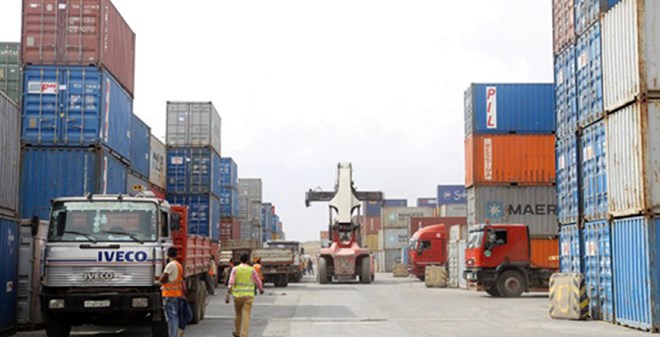
Monday April 10, 2023
No official complaints received, says Ethiopian officials in Djibouti
Ethiopian logistics companies and exporters blame Djiboutian authorities of imposing unprecedented bureaucratic impediments and exorbitant service charges.
Companies that talked to The Reporter say that longer wait times for Ethiopian trucks in Djibouti are hurting Ethiopia’s exports.
Djibouti is Ethiopia’s principal port of entry for imports and exports. Over 90 percent of the nation’s imports and exports go through the ports of Djibouti.
According to the companies, the Djibouti Customs Authorities have made it difficult for Ethiopian logistics companies and exporters to operate.
“Djibouti Customs is creating a significant challenge for Ethiopia’s exports, creating hectic procedures for us. As a result, Ethiopian trucks have been standing in Djibouti for days,” a manager of one of the leading logistics firms in Addis Ababa told The Reporter.
Even after fulling filling documents including consignee, notification letter, and many other requirements, Ethiopian traders say they are being asked “unnecessary documents.”
“We also can’t get to other papers and billing documents, but they keep coming up with new requirements even though we told them there was no room for more red tape,” a manager of one of the leading logistics firms in Addis Ababa told The Reporter.
Djiboutian authorities have also raised fees for a variety of services. Ethiopian firms are being charged between USD 65 and USD 70 to finalize a truck paper.
Another logistics company manager expressed concern about the excessive bureaucracy. “Ethiopia and Djibouti have reached an agreement. However, Ethiopian authorities have no say over the transactions and port services provided in Djibouti. Djiboutian authorities have no authority over us,” the manager said.
Unpredictable interventions and delays in Djibouti, according to an exporter The Reporter spoke with, have also become a headache. “How come Djibouti Customs makes such arbitrary decisions on Ethiopian export transactions? The Ethiopian government, not Djibouti, should regulate the processes of Ethiopian exporters. The Djiboutian authorities are free to do whatever they want.”
However, logistics companies and exporters claim that Ethiopian authorities are unable to permanently resolve the issue.
Abebe Tefera, head of the Ethiopian Maritime Authority (EMA) branch in Djibouti, says that the Ethiopian government is already working to resolve the issue. He claims that the operations committee formed in Djibouti is actively working.
“EMA’s Djibouti branch office occasionally receives complaints from export truck drivers about long lines,” Abebe stated. “We intervene to solve the problem by discussing it with their agents.”
The facilitation issues that Ethiopian importers had in Djibouti have recently been resolved, according to Abebe. “A few months ago, our import cargo encountered a facilitation issue that was resolved two weeks earlier by both countries’ customs authorities following complaints submitted to EMA by the freight forwarder and an inquiry made by the operating committee and others; however, no complaint was submitted on export movement.”
Alemu Sime, the new transport and logistics minister, visited Djibouti a few weeks ago to address the issue of imports.
However, Abebe claims that no official complaints have been filed by Ethiopian exporters so far. He says that the operations committee in Djibouti has never received any complaints about export movement facilitation from the logistics companies or exporters.
“No logistics company or exporter filed a complaint with the EMA, which is in charge of coordinating the country’s imports and exports,” Abebe said. He claims that if formal complaints are filed, the problem can be resolved.
“If a logistics company or exporter has encountered a problem with cargo facilitation, it is preferable for them to submit detailed complaints to the EMA in order to obtain a solution through a proper procedure, as the problem of importing cargo facilitation was solved,” he added.